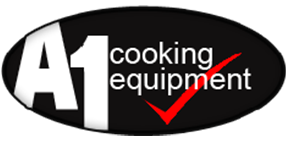Considerations for Upgrading Commercial Kitchen Equipment
Blog | July 23rd, 2023Commercial kitchens are the heart of restaurants, hotels, and other food establishments, and having efficient and reliable commercial kitchen equipment is crucial for smooth operations. As technology advances and culinary trends evolve, upgrading commercial kitchen equipment becomes essential to maintain productivity, ensure food quality, and improve overall efficiency. Continue reading to explore key considerations for upgrading your commercial kitchen equipment to enhance your food service operations.
Assessing Equipment Performance and Reliability
Before upgrading your commercial kitchen equipment, it is important to assess the performance and reliability of your current appliances. Identify any equipment that frequently breaks down, causes delays, or hinders productivity. Evaluate the lifespan of your existing equipment and determine if maintenance costs are becoming a burden. By understanding the strengths and weaknesses of your current equipment, you can prioritise upgrades and investments that will have the greatest impact on your kitchen operations.
Keeping Up with Technological Advancements
Advancements in technology have significantly improved the functionality and efficiency of commercial kitchen equipment. From high-speed ovens to programmable cooking equipment, incorporating new technologies can streamline processes, reduce cooking times, and enhance food quality. Consider equipment features such as energy efficiency, automation, digital controls, and connectivity options. Upgrading to technologically advanced equipment can result in cost savings, improved productivity, and greater control over cooking processes.
Meeting Safety and Compliance Standards
Commercial kitchens must adhere to strict safety and compliance standards to ensure food safety and protect staff and customers. When upgrading equipment, it is essential to consider whether the new appliances meet the required safety certifications and comply with health codes and regulations. Look for equipment with automatic shutoffs, temperature controls, and easy-to-clean surfaces that facilitate food safety practices. Investing in compliant equipment demonstrates your commitment to high standards and can prevent costly penalties or legal issues.
Enhancing Energy Efficiency
Energy costs are a significant expense for commercial kitchens. Upgrading to energy-efficient equipment can reduce operational costs while minimising environmental impact. Look for appliances with Energy Star ratings or other energy-efficient certifications. Consider features such as improved insulation, LED lighting, and advanced ventilation systems that optimise energy usage. Energy-efficient equipment not only lowers utility bills but also enhances sustainability efforts, making it an attractive choice for businesses committed to environmental stewardship.
Considering Space and Workflow Optimisation
Upgrading your commercial kitchen equipment provides an opportunity to evaluate and optimise your kitchen layout and workflow. Consider the space available and how the new equipment will fit within your kitchen’s configuration. Assess the impact on workflow, ensuring the new appliances enhance efficiency and promote smooth operations. Consult with kitchen design professionals to determine the most effective placement and arrangement of upgraded equipment to minimise congestion and maximise productivity.
Upgrading commercial kitchen equipment is a strategic investment that can significantly enhance your food service operations. At A1 Cooking Equipment, we specialise in providing a wide range of high-quality commercial kitchen appliances and solutions. Reach out to us to explore our range of second-hand commercial equipment and discuss your specific equipment upgrade needs.
Optimized by NetwizardSEO.com.au
Recent Posts
- Second Hand Pizza Conveyor Ovens: The Smart Choice for a Start-up Pizza Place
- A1’s Second Hand Baker Oven: Bake Like a Pro on a Budget
- Second Hand Waldorf Char Grill: The Affordable Advantage
- A1 Custom Coolrooms for Restaurants for Efficient Food Storage
- Hobart Commercial Mixers Redefine Baking Standards
- Second-Hand Hobart Dishwashers: Available at A1 Cooking Equipment for High-Volume Cleaning
- Used Commercial Kitchen Equipment: Second Hand Gas Convection Ovens from A1
- Commercial Kitchen Equipment Supply for Your New Restaurant Business in 2024
- Looking for a Rational SCC 101 Combi Steamer? Save On Second Hand with A1
- Second Hand Waldorf Grillplate from A1 Cooking Equipment: Your Best Kitchen Partner for Holiday Season Menus
